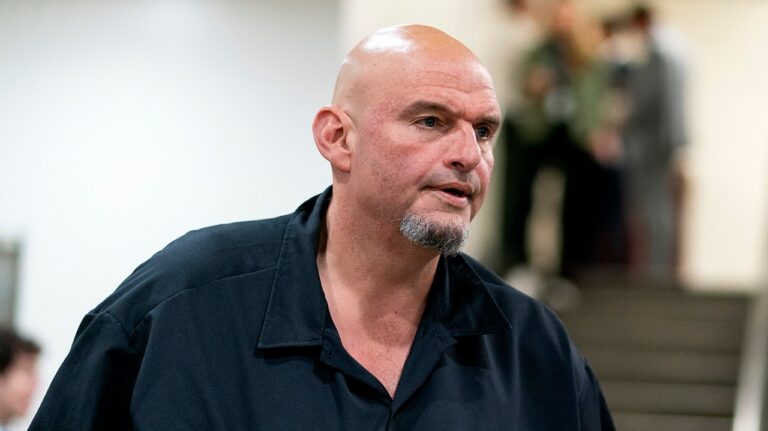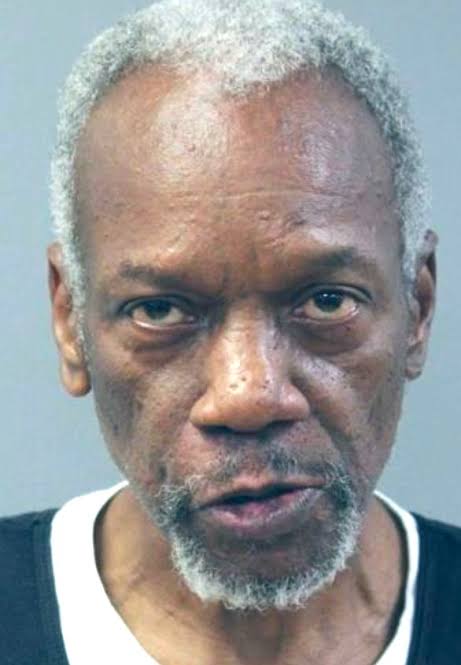Diddy’s Day of Reckoning: Sean Combs Faces Sentencing After Prostitution Convictions

Hip-hop Mogul was convicted on charges of transporting people in state lines for prostitution. Today we will discuss about Diddy’s Day of Reckoning: Sean Combs Faces Sentencing After Prostitution Convictions
Diddy’s Day of Reckoning: Sean Combs Faces Sentencing After Prostitution Convictions
When Sean “Diddy” Combs strides into a courtroom on October 3, 2025, it marks more than just a calendared date in a high-profile trial. It is a turning point in a saga of fame, power, and legal peril—one that has captured global attention. Convicted earlier this year on prostitution-related charges but acquitted of sex trafficking and racketeering counts, the hip-hop mogul now awaits his fate under the federal Mann Act. The question looms: how long will “Diddy” stay incarcerated?
This article unpacks the full context: the charges, the trial, the expectations from prosecution and defense, public reaction, and what the sentencing could mean for Combs’s legacy.
A Fall from Grace: The Indictment and Investigation

The Charges Laid
On September 16, 2024, Sean Combs was arrested and indicted in the Southern District of New York. He faced five federal counts: racketeering conspiracy, sex trafficking by force, fraud, or coercion, and transportation to engage in prostitution (the latter under the Mann Act).
Over subsequent months, prosecutors expanded their allegations. New indictments added forced labor-related claims and broader conspiracy elements tied to his business operations.
The Investigation and Raid
The federal probe was thorough. Authorities searched multiple properties, including Diddy’s homes in Miami and Los Angeles, uncovering a trove of materials described in reports as condoms, lubricants, recordings, and other evidence that alleged to support claims of organized sexual events directed by Combs.
These discoveries, along with recorded video and testimony, bolstered the prosecution’s narrative of a “Freak Offs” enterprise—drug-fueled sexual gatherings orchestrated by Combs, sometimes involving male escorts engaging with his partners.
Pretrial Denials and Bail Battles
Combs was denied bail repeatedly. Judge Arun Subramanian, overseeing the case, cited concerns over witness intimidation, the seriousness of the allegations, and evidence of violence introduced during the trial proceedings. Combs’s attorneys proposed a $50 million bond and offered strict travel restrictions, but the judge was unconvinced.
Thus, from arrest through trial and up to sentencing, Combs has remained in custody—unable to pursue his public ventures or personal freedom.
The Trial: Mixed Verdicts in a High-Stakes Case
Opening Statements and Trial Structure
The trial unfolded over several weeks beginning May 5, 2025. The prosecution put forward numerous witnesses—reportedly 34 in total—including former partners, personal assistants, alleged male escort employees, and staff.
The defense made the surprising choice to not call any witnesses, resting their case after a brief presentation and relying heavily on cross-examination and closing arguments.
A central tactic by the defense was to frame the allegations as misinterpretations of a “swinger lifestyle” between consenting adults. They conceded that Combs’s personal life included turbulence and admitted prior incidents of abuse, but emphasized that he was not part of a criminal enterprise as alleged by the government.
The Verdicts: Guilty on Prostitution, Acquitted on Trafficking and RICO
On July 2, 2025, after days of deliberation, the jury rendered a split verdict:
-
Not Guilty on racketeering conspiracy and both sex trafficking counts (for Casandra “Cassie” Ventura and Jane).
-
Guilty on two counts of transportation to engage in prostitution (one linked to Cassie, one for Jane) under the Mann Act.
Each of those prostitution counts carries a maximum sentence of 10 years, so in theory, Combs could face up to 20 years if the sentences ran consecutively.
However, federal sentencing guidelines, as well as mitigation arguments, suggest a lower expected term.
Notably, prosecutors and the U.S. Probation Department published memos recommending lengthy terms, while the defense countered with requests for minimal additional time beyond what Combs has already served.
Key Evidence and Testimony
Witness testimony painted a disturbing portrait of control and coercion. Ventura described years of physical abuse, threats, and humiliation. She also testified that she was threatened with exposure of intimate content if she didn’t comply.
Another witness, “Jane,” described being forced into illicit sexual encounters at Combs’s direction while under duress and often drugged.
Surveillance video was also pivotal—footage from 2016 showed Combs dragging and kicking Cassie Ventura in a hotel corridor. The prosecution introduced it to illustrate a pattern of violence that bolstered credibility to claims of coercion.
Combs’s legal team countered by challenging witness motivations, inconsistencies in testimony, and emphasizing that the jury acquitted on more severe counts, which they said undermines the credibility of the prosecution’s broader narrative.
The Sentencing Showdown: Prosecution vs Defense
Prosecutors Push for 11+ Years
In their sentencing memorandum, federal prosecutors argued for a sentence of at least 11 years (135 months). They characterized Combs as “unrepentant,” citing his history of abuse and the weight of victim testimony.
The prosecution contended that Combs’s conduct warranted a term “well over ten years” given the harm, intimidation, and abuses involved.
They also referenced comparable cases involving power dynamics, abuse, and coercion in sexual crimes, arguing that Combs should not receive leniency just because some victims were adults or because profits were not claimed.
Defense Seeks 14 Months (Time Served)
Combs’s defense, in contrast, asked for a 14-month sentence, effectively meaning time served, since he has already been incarcerated for approximately a year.
They stressed that the jury declined to convict him of trafficking or racketeering and that conviction was limited to what his legal team describes as consensual adult sexual encounters.
The defense also highlighted Combs’s rehabilitation inside jail—participation in education, therapy, teaching programs, and claims of spiritual renewal.
Importantly, the defense motion argues that enhancement based on factual determinations (force, coercion, other uncharged behavior) would improperly punish beyond what the jury convicted him of.
They implored the Court not to elevate the sentence by facts not proved beyond a reasonable doubt.
The Probation Office’s Recommendation
The U.S. Probation Department (which often provides a sentencing guideline recommendation) reportedly suggested a range of 5 to 7 years.
That figure reflects an intermediate ground view—not the maximum, but far higher than what the defense proposes.
Combs’s Final Push: Letters, Remorse, and Appeals
In the lead-up to sentencing, Combs submitted a letter to Judge Subramanian expressing deep remorse, spiritual rebirth, and a pledge that he will not reoffend.
He described himself as “broken” at the time of his 2024 arrest and said confinement allowed reflection and growth.
Meanwhile, defense attorneys filed motions asking the judge to overturn the convictions or grant a new trial, contending that the Mann Act was applied improperly and that the evidence was insufficient under law.
They claimed the case effectively criminalizes consensual sexual behavior outside the narrow scope historically intended by the statute.
Some observers believe these efforts may sway Judge Subramanian to temper the sentence or reconsider parts of the verdict. But prosecutors staunchly oppose these requests and argue Combs’s behavior merits strong punishment.
What Could the Sentence Be?
Statutory & Guideline Range
Because each prostitution count carries a 10-year maximum, the theoretical ceiling is 20 years.
But sentencing statutes, guidelines, and judicial discretion paint a far more complex picture.
The guideline-recommended range is influenced by offense level, criminal history, acceptance of responsibility, sentencing enhancements, and mitigating factors. Given his lack of prior convictions, the defense’s arguments, and time served, the judge might land somewhere between the probation office’s 5–7 years and the prosecution’s 11+ years demand.
Credit for Time Served
Combs will receive credit for the roughly one year he’s been in detention already (pretrial).
This can substantially reduce any new imposed sentence, depending on how the judge calculates overlapping time.
Potential Outcomes
-
Strong sentence (9–12+ years): Aligns with prosecutors’ demands, reflecting the gravity of coercive conduct and victim harm.
-
Moderate sentence (5–7 years): Falls in line with probation office recommendation, balancing punishment with mitigating factors.
-
Minimal additional time / immediate release: If the judge aligns with the defense, ruling that Combs’s psychological transformation, time served, and acquittals weigh heavily in his favor.
Given the polar recommendations, a middle ground outcome (e.g., 7–9 years) is quite plausible. But it will depend heavily on how Judge Subramanian weighs aggravating conduct, mitigation, and whether he accepts defense arguments about scope of evidence.
Broader Implications: Reputation, Civil Claims, and Culture
The Legacy of Diddy
Regardless of the final sentence, Diddy’s public image has already suffered a severe blow. Once celebrated as a cultural icon, producer, entrepreneur, and philanthropist, he now confronts a legacy tarnished by legal scandal, victim narratives, and a very real period of incarceration.
This moment may recast his legacy—from success and influence to cautionary tale about power, accountability, and celebrity excess.
Civil Litigation and Financial Fallout
Combs is already subject to numerous civil lawsuits by alleged victims spanning decades, some involving severe claims of assault and abuse.
A criminal conviction can strengthen those plaintiffs’ positions, influencing settlements or judgments.
Additionally, business partners, sponsors, and brand deals are likely to reconsider associations. The ripple effects could be vast—contracts terminated, investments halted, and reputation across industries re-evaluated.
Legal Precedents and the Mann Act
The Combs case has raised critical legal questions about how broadly the Mann Act may be applied in contemporary contexts. Defense arguments challenge its extension into consensual adult encounters crossing state lines. The court’s handling of these issues could influence future sex crime prosecutions and interpretations of federal statutes.
Many will watch whether judicial restraint or prosecutorial ambition prevails, and whether statutes originally crafted in an early 20th-century moral framework adapt (or overreach) in a 21st-century context.
Cultural Reckoning and #MeToo 2.0
Combs’s trial also reinforces ongoing debates around sexual misconduct, consent, power dynamics, and how society confronts allegations against influential men. In the wake of #MeToo, this case is viewed by many as another inflection point—an example of how far accountability might reach into elite circles.
Survivor voices, public opinion, media narratives, and the court’s ultimate decision will all play into a broader cultural reckoning about consent, coercion, and celebrity immunity.
Conclusion: Diddy’s Moment of Truth
“Diddy’s Day of Reckoning” is not just a sensational headline—it is the apex of a long, tangled journey through fame, accusations, and legal peril. When Judge Subramanian pronounces the sentence (or rules on motions) on October 3, 2025, the decision will be more than about years behind bars. It will determine:
-
Whether the prosecution’s narrative of coercive abuse is fully vindicated
-
Whether a high-profile celebrity is held accountable on terms similar to ordinary defendants
-
Whether bold legal theories about the Mann Act endure or crumble
-
The lasting mark on Combs’s legacy and what it signals for others in power
At its core, this is a moment where the myth of invincibility collides with the mechanics of justice. For Sean “Diddy” Combs, the courtroom drama is poised to define the rest of his life—not just legally, but culturally and historically.
How useful was this post?
Click on a star to rate it!
Average rating 0 / 5. Vote count: 0
No votes so far! Be the first to rate this post.
About the Author
usa5911.com
Administrator
Hi, I’m Gurdeep Singh, a professional content writer from India with over 3 years of experience in the field. I specialize in covering U.S. politics, delivering timely and engaging content tailored specifically for an American audience. Along with my dedicated team, we track and report on all the latest political trends, news, and in-depth analysis shaping the United States today. Our goal is to provide clear, factual, and compelling content that keeps readers informed and engaged with the ever-changing political landscape.




